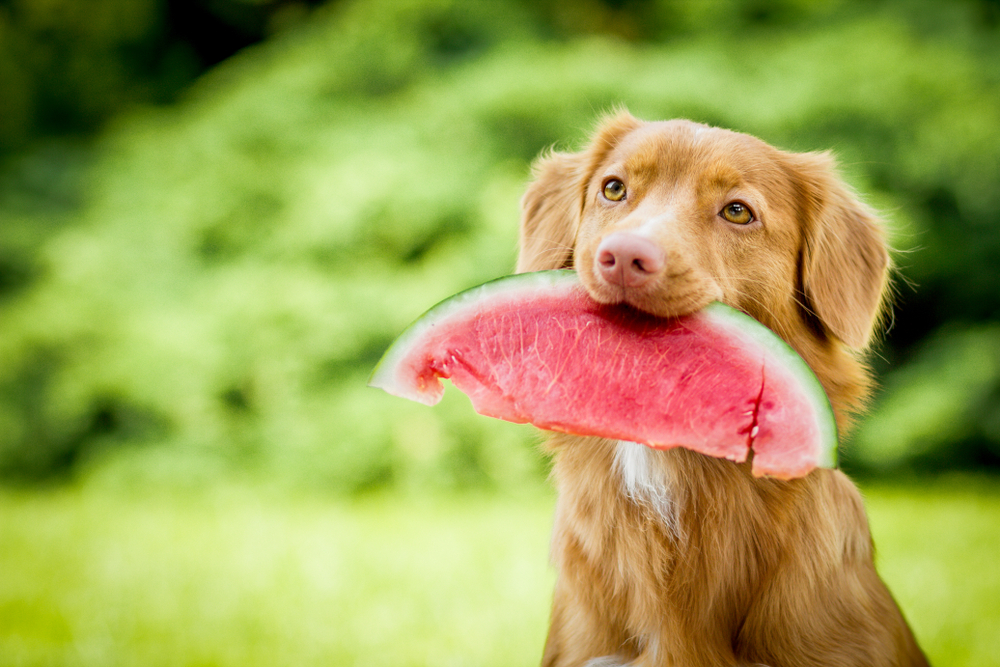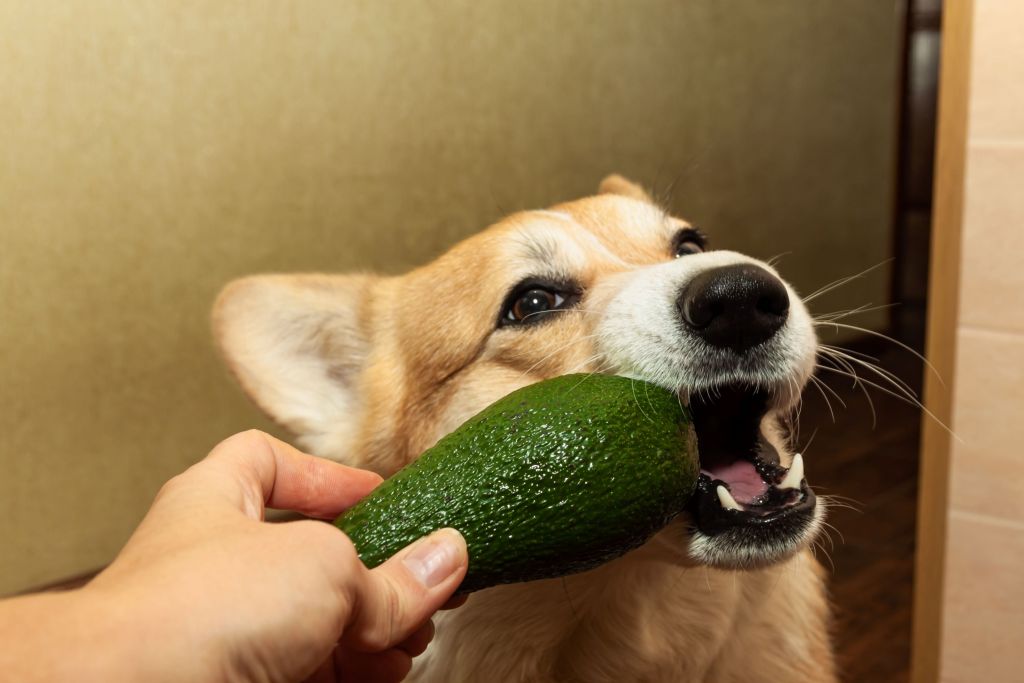
Certain foods we eat, like spicy chili and garlic-laden pasta, are obviously unsafe for dogs. You might think fruit is safe for your pup across the board, but some fruits, such as grapes, raisins, and persimmons, can cause everything from diarrhea to seizures — and potentially even death. However, many fruits are nutritious and high in fiber, so how do you know which ones are safe to give your pup as a treat?
You’ve come to the right place if you’ve ever wondered, “Can dogs eat blueberries?” We’ll give you the scoop on whether your pooch can enjoy these nutrient-rich berries as a tasty treat.
Are blueberries toxic to dogs?

A known superfood, blueberries are full of antioxidants (which help fight cell damage), potassium, vitamin C, and phytoflavinoids. For humans, including blueberries in your diet can help reduce inflammation and decrease your risk of cancer and heart disease.
You might be thinking, “Sure, those are the benefits for humans, but can my dog safely eat them?” We have some good news: Blueberries make a wonderful, low-calorie alternative to store-bought dog treats. Even better: blueberries contain almost no fat, so you won’t have to worry about your pooch packing on the pounds.
How many blueberries can a dog have in a day?

According to Dr. Deborah Bayazit, the medical director and co-founder of Brilliant Veterinary Care, you should avoid feeding your dog canned blueberries. Also, a no-no: blueberries with added sugars or artificial sweeteners. Some artificial sweeteners, such as xylitol, can be toxic to your pup. Instead, Dr. Bayazit recommends thoroughly washing organic blueberries before feeding them to your pup.
Depending on your dog’s size, he can safely eat 8 to 10 blueberries a day. In addition to doling them out one by one as a snack, you can also mix them with your dog’s food. If your pet enjoys blueberries, consider using them as a treat during training sessions. However, you shouldn’t feed your pooch too many berries at a time until you know how he responds to them. Some dogs can suffer from stomach discomfort and even diarrhea after consuming blueberries.
What fruit can a dog eat?

In addition to blueberries, there are numerous other fruits your dog can safely enjoy in small doses. These include:
- Strawberries: Rich in potassium, vitamin C, antioxidants, and fiber, strawberries are a fantastic treat for your pup. Just make sure to cut them into bite-sized pieces or mash them up to create a tasty, juicy snack.
- Bananas: Bananas are loaded with potassium and are perfectly safe for dogs to eat. However, don’t let your pup get hold of the peels, as they’re almost impossible for dogs to digest.
- Watermelon: Because watermelon is mostly water, this scrumptious, dog-safe treat is excellent for the summer months. Please make sure to remove the rind and any seeds (even the light ones) from the watermelon before feeding it to your dog.
Dogs can also eat blackberries, cranberries, raspberries, pineapples, and pears in moderation. As long as you peel the fruit, your dog might enjoy mango and orange slices. Apples and peaches (with the respective core and pit removed) can also be a tasty treat for some pups.
What fruits can dogs NOT eat?

We’ve covered all the fruits your dog can share with you, but there are a few that should always stay on the no list. Most pet parents know that both grapes and raisins must be avoided — they can even result in kidney failure. In addition to our favorite winemaking fruit, you also don’t want to provide avocado, most citrus, and tomatoes if you can help it.
None of these are toxic in very small quantities, but the high-fat content of avocados can cause issues and fruits like oranges, lemons, and tomatoes are likely to cause stomach upset because of their acids. Lastly, you should avoid giving your dog wild berries since you won’t know where they have come from (or what they are in some cases).
Homemade treats will thrill your pup

Many dogs grow to love their fruity snacks — some even more than treats you might find in the store. Always start off slowly in case your pup doesn’t have an easy time digesting fruit. Lastly, please consult your veterinarian if your pooch is obese or suffers from chronic health conditions, like diabetes or heart disease, before giving your dog any new treat.



